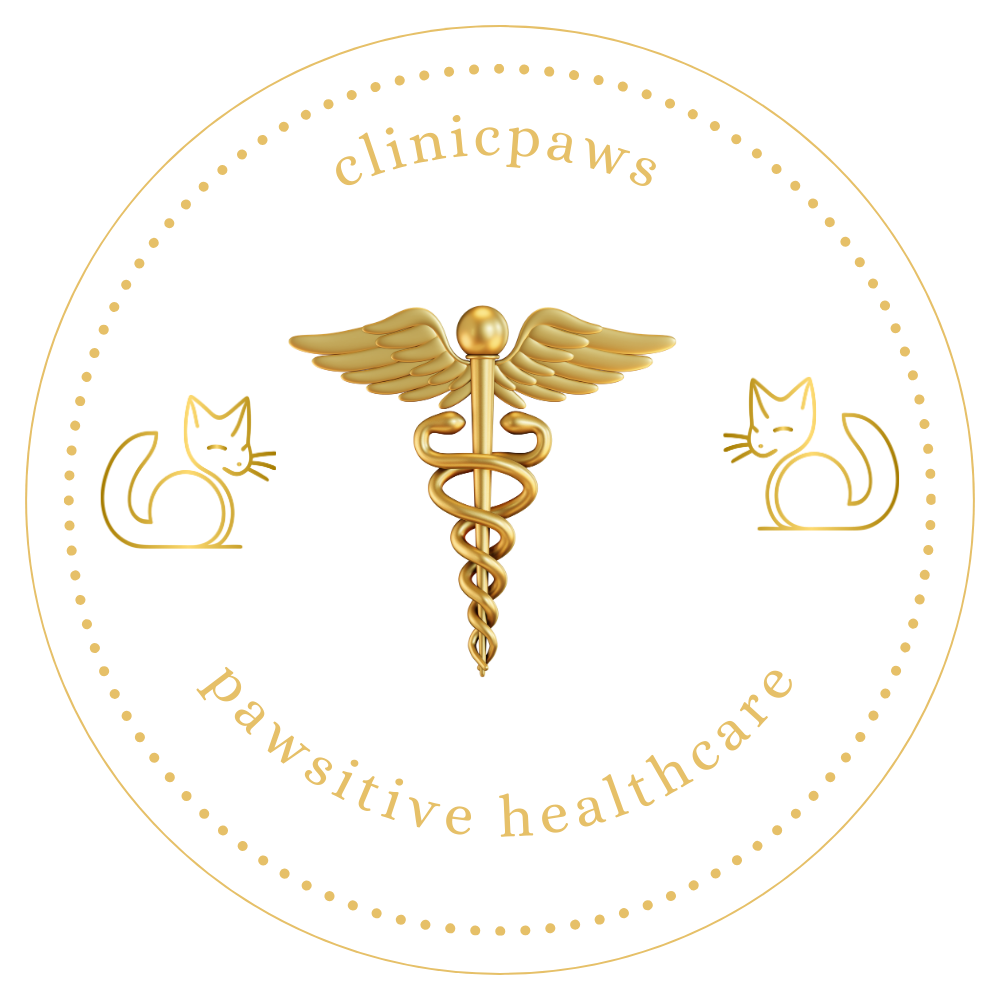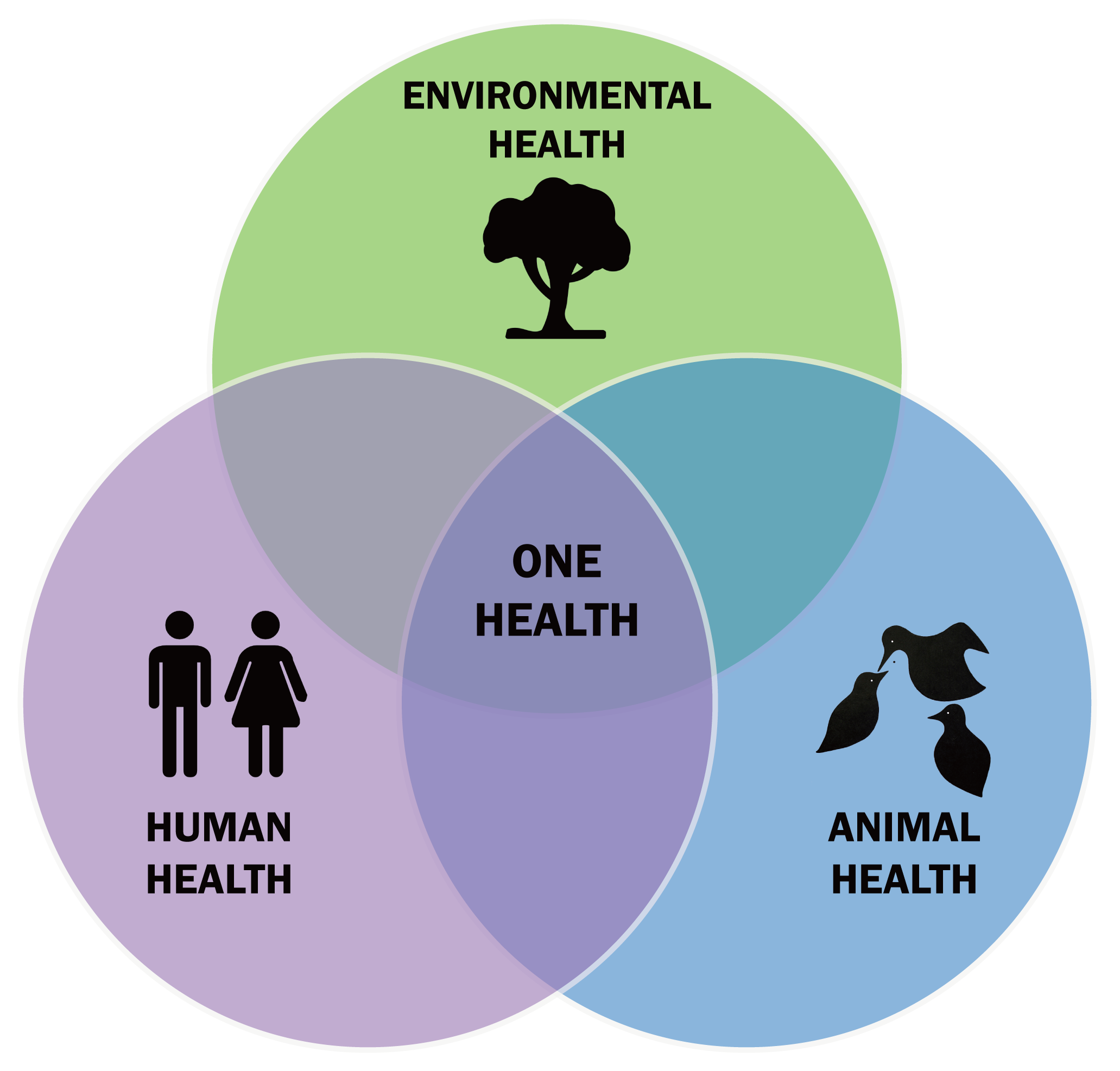TLDR:
“One Health is a concept that recognises the inter-connectedness of human, animal, and environmental health.”
Why one health?
The concept of one health is quite new so I totally get it if you are unsure of what is it, in simple words, the health of the humans, animals and the ecological health as a whole is interwined and interwoven, intricatly linked to one another. It is very crucial and significant from a public health perspective such that disease prevention and the health of a population is directly or indirectly linked to the ecological health and animal population.
We recently have been plagued by COVID pandemic(SARS-CoV-2), famously known to have jumped species from bat to humans, and there are yet even wild theories suggesting that the origin was the result of a lab leak! But we arent here to synthesize any wild conspiracy theories, lets break down of the concept and significance of one health.
Origin
Even though the concept of one health is quite nascent, there are enumerous instances that point to us what and why one health is and is important. The acceptance of the “Germ theory of disease”, is a major mile stone in this regards. The term was very recently introduced in 2004 in a symposium in New york by the wild life conservation society. Does this mean it a new concept? Na-uH, not really. From Aristotle to Sir Charles Darwin, the idea that the health of the ecology, animal and humans are interwined is not new. In the last few centuries, there has been quite a few numbers of pandemic and few endemics humans had to endure and most of these orginated from animals. The spread of these diseases resulting in pandemics can be attributed to evolution as well, as humans advanced in civilisation and shifted from hunter-gatherers to agri based and Expanded trades between communities have increased interactions between humans and animals and facilitated the transmission of zoonotic pathogens. Thereafter, expanded cities, extended trade territories, increased travels as well as effects on ecosystems.
“Those who cannot remember the past are condemned to repeat it.” -- George Santayana
FlashBacks
Throughout history, there have been numerous instances that vividly illustrate the intricate web of connections between human, animal, and ecological health. One notable example dates back to the 14th century when the Black Death swept through Europe. This devastating pandemic, caused by the bacterium Yersinia pestis, originated in rodents and was transmitted to humans through fleas. It resulted in the loss of millions of lives, fundamentally altering societies and economies. Similarly, in more recent times, we’ve witnessed the global impact of diseases like Influenza A(H1N1), commonly known as the swine flu, which emerged in 2009. This virus was a unique combination of swine, avian, and human influenza strains, highlighting the potential for cross-species transmission and the need for vigilance in monitoring both animal and human health.
Another instance is the 1918 influenza pandemic, often referred to as the Spanish flu. This virus, believed to have originated from avian species, swiftly spread among humans, claiming millions of lives worldwide. These historical events serve as stark reminders of how diseases can leap across species boundaries, underlining the critical importance of understanding and managing the health of humans, animals, and the environment as an integrated whole.
Similarly, the Ebola outbreaks in West Africa between 2014 and 2016 brought to light the profound interplay between human, animal, and ecological health. Ebola viruses are believed to have originated from bats, and through various pathways, spilled over to humans. These outbreaks demonstrated the urgency of understanding and managing zoonotic diseases within the broader context of One Health.
Furthermore, Tuberculosis (TB) remains a significant global health concern. While primarily a human disease, it can also affect animals, especially livestock and wildlife. In some cases, the transmission between humans and animals has been observed, emphasising the intricate connections between their health.
These recent and historical examples underscore the vital importance of One Health in our increasingly interconnected world. They emphasize the need for proactive measures to prevent, monitor, and respond to emerging diseases, recognizing that the health of humans, animals, and the environment are deeply intertwined.
Forewarned is forearmed
And yes it is high time that we learned the lesson, inspite of the advancement in modern medicine, recent instance have shown us how overwhelming the healthcare infrastructure can get in such times. And consider the ecological disbalance at hand, the trend in the wild fires that has gone up significantly, The era of global warming has ended and “the era of global boiling has arrived”, the UN secretary general, António Guterres, has said on july 2023. The self centered act of generations of humans, sub-consciosly sucking up to the earth’s resources and distruction of natural resources has put forth the existence of so many species in jeopardy and now, when it is almost too late! We are waking up. Yes, a little advocating for the climate here because ecology is very much a part of the one health concept, without which we humans (‘most intelligent species’ pun intended ) will cease to exist. The dwindling forest lands across the globe is a major cause of concern, specially since it is home to hundreds of species. The major shift in the health of the environment will thus effect the ecological balance, resulting in mass extinction of some species, change in food chain and ecological disbalance. Thus Ecology plays a pivotal role in the One Health paradigm as it encompasses the study of interactions between organisms and their environment. It provides critical insights into how changes in ecosystems can influence the health of both animals and humans. For instance, alterations in habitat due to factors like deforestation or urbanization can lead to shifts in wildlife populations and behaviors, potentially bringing humans into closer contact with new pathogens. Additionally, disruptions in natural environments can impact the availability of resources and lead to stressors on both animal and human populations. Understanding these ecological dynamics is essential for effectively managing and mitigating the spread of diseases that can originate from wildlife or domesticated animals. By recognizing the intricate relationship between ecological stability and public health, the One Health approach seeks to promote holistic strategies that safeguard not only human and animal well-being, but also the integrity of the ecosystems upon which they depend.
Animal: how do they fit in?
According to some historians, domestication of animals dates back to around 5000 BCE, since then humans and animals have grown dependent of each other, with the former being more dependent on the later.Humans and animals over time have grown and adapted to each other, dogs, one of the first animals to be domesticated by humans can act as the source of rabies disease, and some animals also share our susceptibility to some diseases and environmental hazards. Because of this, they can sometimes serve as early warning signs of potential human illness. For example, birds often die of West Nile virus before people in the same area get sick with West Nile virus infection,monitoring wildlife populations can provide valuable insights into the prevalence and spread of diseases like avian influenza or Lyme disease. Moreover, domesticated animals, such as livestock, are integral to human societies for food production and livelihoods. Ensuring their health and preventing the spread of diseases within these populations is not only critical for economic stability but also for safeguarding human health, given the close interactions between humans and livestock. Additionally, companion animals, like dogs and cats, are beloved members of many households, and their health can have direct implications for human well-being. Recognizing the pivotal role of animals in the context of One Health underscores the need for integrated approaches that prioritize the health of all living beings in our interconnected ecosystems.
Objectives
The objectives of One Health are multi-faceted and grounded in rigorous scientific principles. Foremost, it seeks to elucidate and mitigate zoonotic disease transmission pathways, minimizing the risk of outbreaks with zoonotic origins. Additionally, One Health endeavors to optimize interdisciplinary collaboration among medical, veterinary, and environmental experts. This collaborative approach aims to synergize expertise and resources for comprehensive health assessments and interventions. Moreover, One Health recognizes the intrinsic link between ecosystem health and human well-being, emphasizing the conservation and restoration of ecological balance. In tandem, it strives to inform and refine public health policies, ensuring swift and effective responses to emerging health threats. In essence, One Health is guided by a scientific mandate to safeguard the health of both biological systems and the human population they sustain.
According to the CDC, the objectives of one health is to
- Prevent outbreaks of zoonotic disease in animals and people.
- Improve food safety and security.
- Reduce antimicrobial-resistant infections and improve human and animal health.
- Protect global health security.
- Protect biodiversity and conservation.
In conclusion, the One Health approach stands as a beacon of hope in the realm of global health. By recognizing the intricate connections between human, animal, and environmental health, it offers a comprehensive framework for safeguarding our collective well-being. Through historical lessons and recent events, we have learned that disease knows no boundaries, underscoring the urgency of a unified approach. Animals serve as sentinel beings, offering crucial insights into emerging threats, while ecology forms the foundation upon which all life depends. The objectives of One Health, rooted in scientific rigor, pave the way for a future where health is managed holistically, across disciplines and species. As we move forward, it is imperative that we continue to champion the cause of One Health, ensuring a harmonious coexistence for generations to come. Together, we embark on a shared journey towards a healthier, more resilient world.

